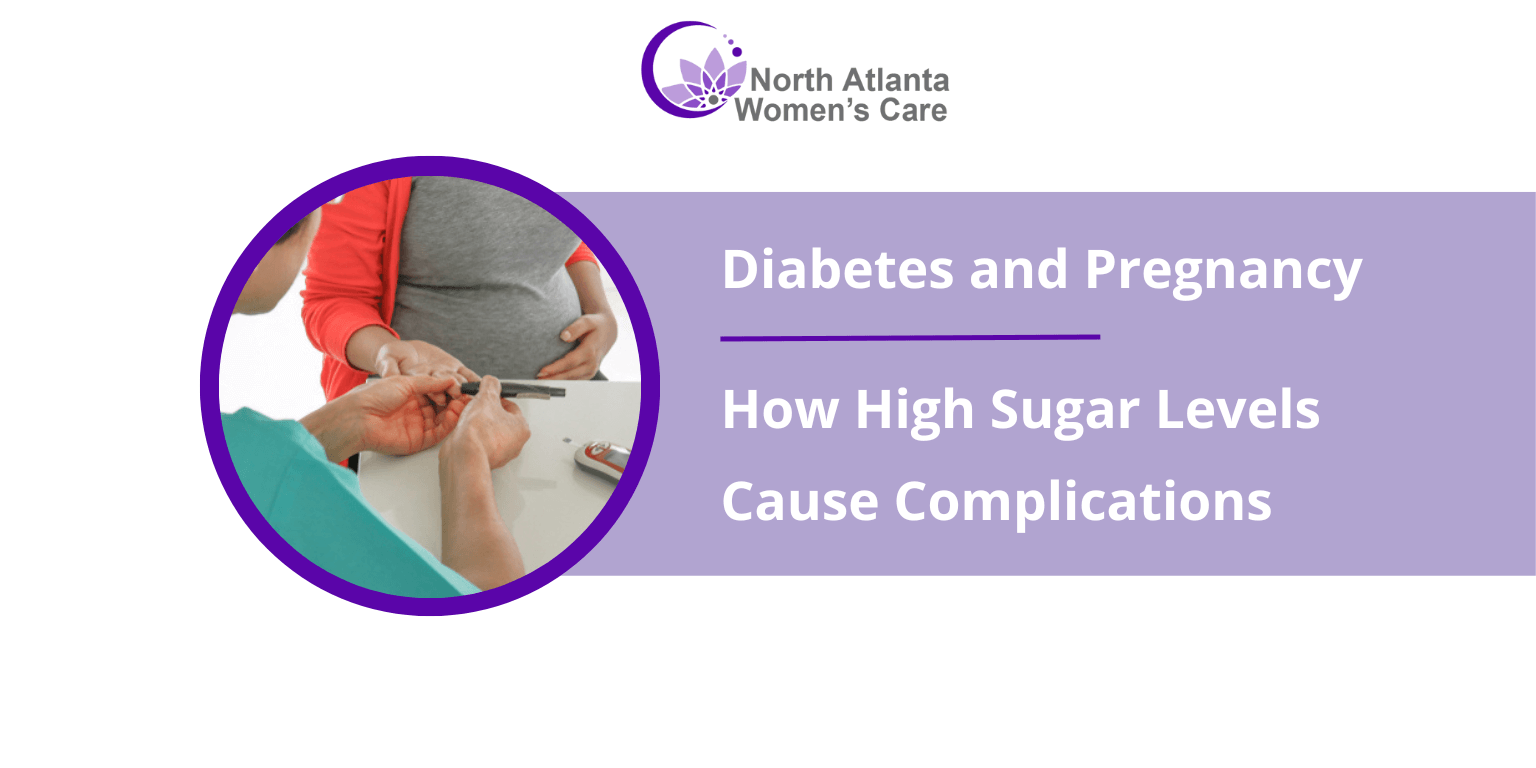Diabetes and Pregnancy – How High Sugar Levels Cause Complications

Diabetes occurs when your body cannot use or make enough insulin, a hormone that allows glucose (sugar) to enter your cells to provide energy. If the glucose does not enter your cells, it gets accumulated in the blood, resulting in high blood sugar (hyperglycemia). Though diabetes affects people of all age groups at any time, it is common during pregnancy. According to the CDC, nearly 10% of women develop diabetes during pregnancy.
Read on to learn more about diabetes during pregnancy and why it is important to treat it on time.
Types of Diabetes That Occur During Pregnancy
A pregnant woman can develop:
- Pre-Gestational Diabetes – It can be either type 1 or type 2 diabetes and occurs before you become pregnant. Type 1 diabetes is a genetic condition that appears early in life, whereas type 2 diabetes is lifestyle-related and often develops throughout time.
- Gestational Diabetes – It develops during pregnancy and subsides once you give birth.
What Causes Diabetes While Pregnant?
During pregnancy, your placenta is responsible for giving your baby enough water and nutrients. It also makes hormones required for a healthy pregnancy, and some of them can block insulin. As the placenta grows, more insulin-blocking hormones are produced. So, your pancreas has to produce enough insulin to account for those that are blocked. If it does not or cannot produce insulin, you will develop gestational diabetes.
You are at an increased risk of developing gestational diabetes if you:
- Are over 25 years old
- Have had a stillbirth
- Are overweight
- Have had gestational diabetes in previous pregnancies
- Gave birth to a large baby
- Have a family history of diabetes
- Have polycystic ovary syndrome (PCOS)
- Have pre-diabetes (having high blood sugar, but not high enough to be diabetic)
Symptoms of Diabetes During Pregnancy
Gestational diabetes does not usually cause any symptoms, and most women do not know they have diabetes until they get tested. However, increased thirst and hunger and frequent urination may indicate you have diabetes.
How Is Diabetes Diagnosed While Pregnant?
If you are at risk for type 2 diabetes, your gynecologist will perform a blood glucose test in your early pregnancy, maybe during your first checkup. However, gestational diabetes develops around 20 to 24 weeks of pregnancy, so you will have another blood glucose screening during that time.
Screening procedures for gestational diabetes include:
- One-Step Test – After an overnight fast, you will be given 75 grams of glucose. Your provider will check your blood sugar after a set amount of time.
- Two-Step Test – This test does not require fasting. You will be given 50 grams of glucose, and after a stipulated interval, your provider will check your blood sugar. If your blood sugar is high, you will undergo another OGTT (oral glucose tolerance test) with 100 grams of glucose.
How Is Diabetes During Pregnancy Treated?
The treatment for gestational diabetes depends on your age, overall health condition, symptoms, and the severity of your condition.
Generally, a gestational diabetes treatment plan includes:
- A healthy, well-balanced diet (with no carbohydrate beverages and foods)
- Physical activity
- Insulin injections
- Oral medicines to lower blood glucose
- Blood glucose monitoring at home
Is Diabetes in Pregnancy Serious and Can It Harm the Baby?
Though gestational diabetes goes away after giving birth, leaving it untreated can cause the following health issues in:
Mothers
- Type 2 diabetes in the future
- C-Section delivery
- High blood pressure and preeclampsia (a life-threatening complication)
Babies
- Congenital Birth Defects – These include digestive disorders, defects in the heart and connecting blood vessels, urinary tract and kidney issues, and brain and spinal abnormalities.
- Stillbirth – Causes a baby to die either before or shortly after birth.
- Macrosomia – A baby that is larger than usual, causing complications in delivery.
- Hypoglycemia (Low Blood Sugar) – A baby may have low blood glucose immediately after birth, which can cause seizures.
- Breathing Difficulties – Excessive glucose or insulin may delay lung development in babies, causing breathing issues.
- Birth Injury – A baby, because of its large size, may sustain injuries during delivery.
- Health Issues – Babies may have an increased risk of developing type 2 diabetes and obesity in the future.
- Preterm Birth – High blood sugar can increase the risk of early delivery.
So, to avoid these complications, it is essential to seek medical assistance as soon as you develop diabetes while pregnant.
Wondering If You Have Gestational Diabetes? Visit North Atlanta Women’s Care Today!
At North Atlanta Women’s Care, we have board-certified gynecologists who offer excellent medical care for all your pregnancy-related health concerns, including diabetes, whether it is gestational, type 1, or type 2. Schedule an appointment with us to keep your diabetes in check and get high-quality pregnancy care and delivery in Suwanee, GA.
Comments are closed

